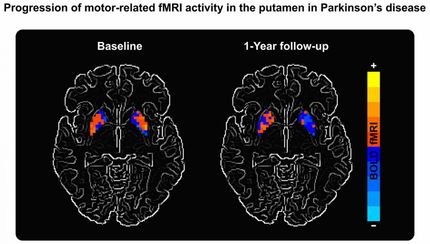Teriflunomide in Adjunct to Interferon Beta Significantly Improved Outcomes of Multiple Sclerosis Patients
One-Year Phase II Data Presented at the 2010 ACTRIMS Meeting
Advertisement
Sanofi-aventis reported new one-year data from a Phase II study with teriflunomide, a novel oral disease modifier being investigated for the treatment of relapsing multiple sclerosis (RMS). Study results demonstrated an improvement in outcomes, with a consistent safety profile with the data from a previous Phase II monotherapy study, in patients treated with interferon beta (IFN-[BETA]) - a standard therapy in RMS - and receiving teriflunomide 7mg or 14mg, compared with patients treated with IFN-[BETA] and receiving oral placebo.
Although this Phase II study (n=116) was not powered to test for efficacy, patients taking 7mg or 14mg teriflunomide in adjunct to stable dose IFN-[BETA] experienced a significant relative risk reduction (86%; p=0.0005 and 82.8%; p<0.0001 respectively) in the number of gadolinium enhancing T1 (T1-Gd) lesions on brain magnetic resonance imaging compared with patients taking stable dose IFN-[BETA] with placebo. No unexpected safety findings have been showed with teriflunomide during the one-year period of the study as compared to the initial six-month period. Discontinuations due to treatment-emergent adverse events (TEAEs) were low and numerically similar in the three groups (placebo: 2; 7mg: 3; 14mg: 3).
"These full-year exploratory study results are encouraging as they demonstrate significant improvement in disease activity based on MRI and an acceptable safety profile associated with teriflunomide when added on top of stable therapy with IFN-[BETA]," saidMark S. Freedman, HBSc, MSc, M.D., Professor of Neurology, Department of Medicine, University ofOttawa, Ontario, Canada. "Adjunct therapy could fill an unmet medical need for those patients who are on interferon therapy but have some disease activity as measured by MRI or relapse rate. We hope to replicate the results in a Phase III study program."
A dose-dependent trend toward a relative risk reduction in the volume of brain lesions was observed with teriflunomide 7mg or 14 mg groups when used as adjunct therapy compared with placebo (72.1%; p=0.11 and 70.6%; p=0.01 respectively). There was also a dose-dependent trend to a reduction in annualized relapse rate of 32.6% (p=0.43) and 57.9% (p=0.11) in 7mg or 14mg teriflunomide adjunct groups respectively compared to IFN-[BETA] with placebo.
The most frequently reported treatment emergent adverse events were upper respiratory tract infections as a whole (placebo: 17.1%; 7mg: 16.2%; 14mg: 23.7%), mainly nasopharyngitis and sinusitis, all types of headaches (placebo: 7.3%; 7mg: 5.4%; 14mg: 18.4%), all gastrointestinal disorders (placebo: 24.4%; 7mg: 18.9%; 14mg: 31.6%). White blood cell counts decreases were numerically comparable in both teriflunomide and placebo treatment groups (placebo: 3; 7mg: 3; 14mg: 4) and no patients discontinued treatment due to neutropenia or infection. Hepatic TEAEs were mainly asymptomatic liver enzyme elevation; mostly alanine aminotransferase (ALT) increased, not exceeding three times the upper limit of the norm and no cases of concurrent increase of ALT and total bilirubine were reported.





















































